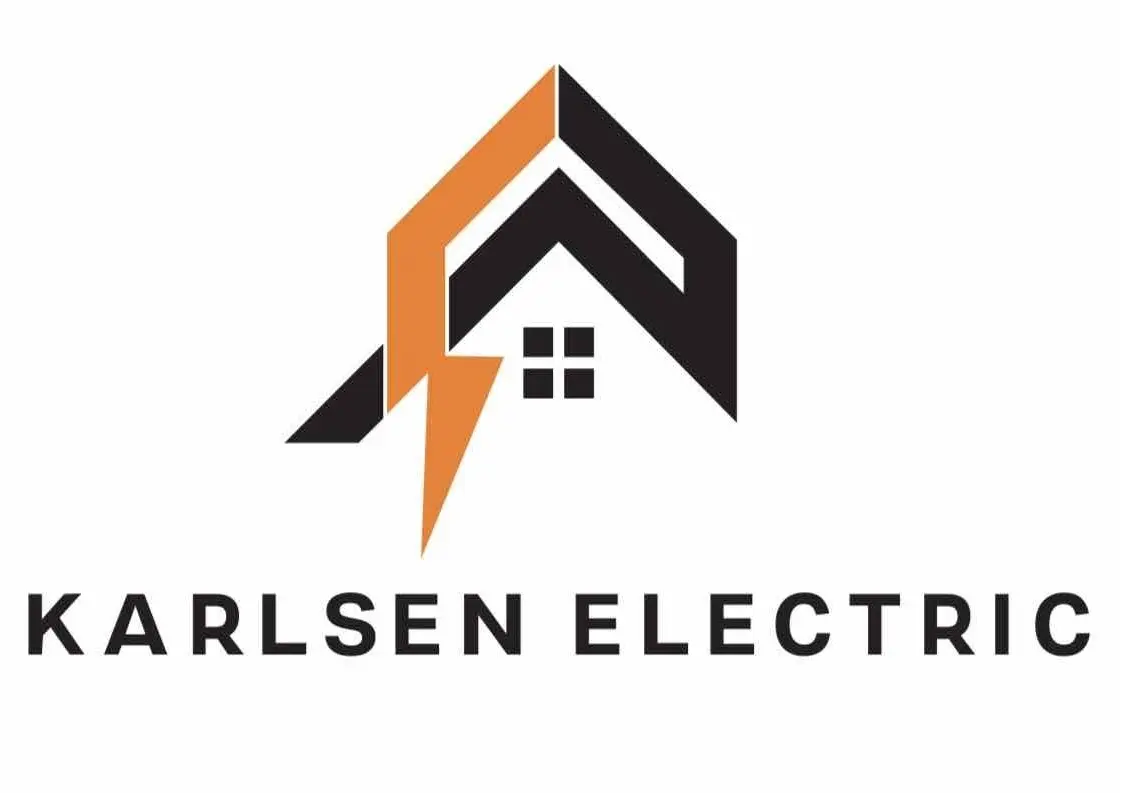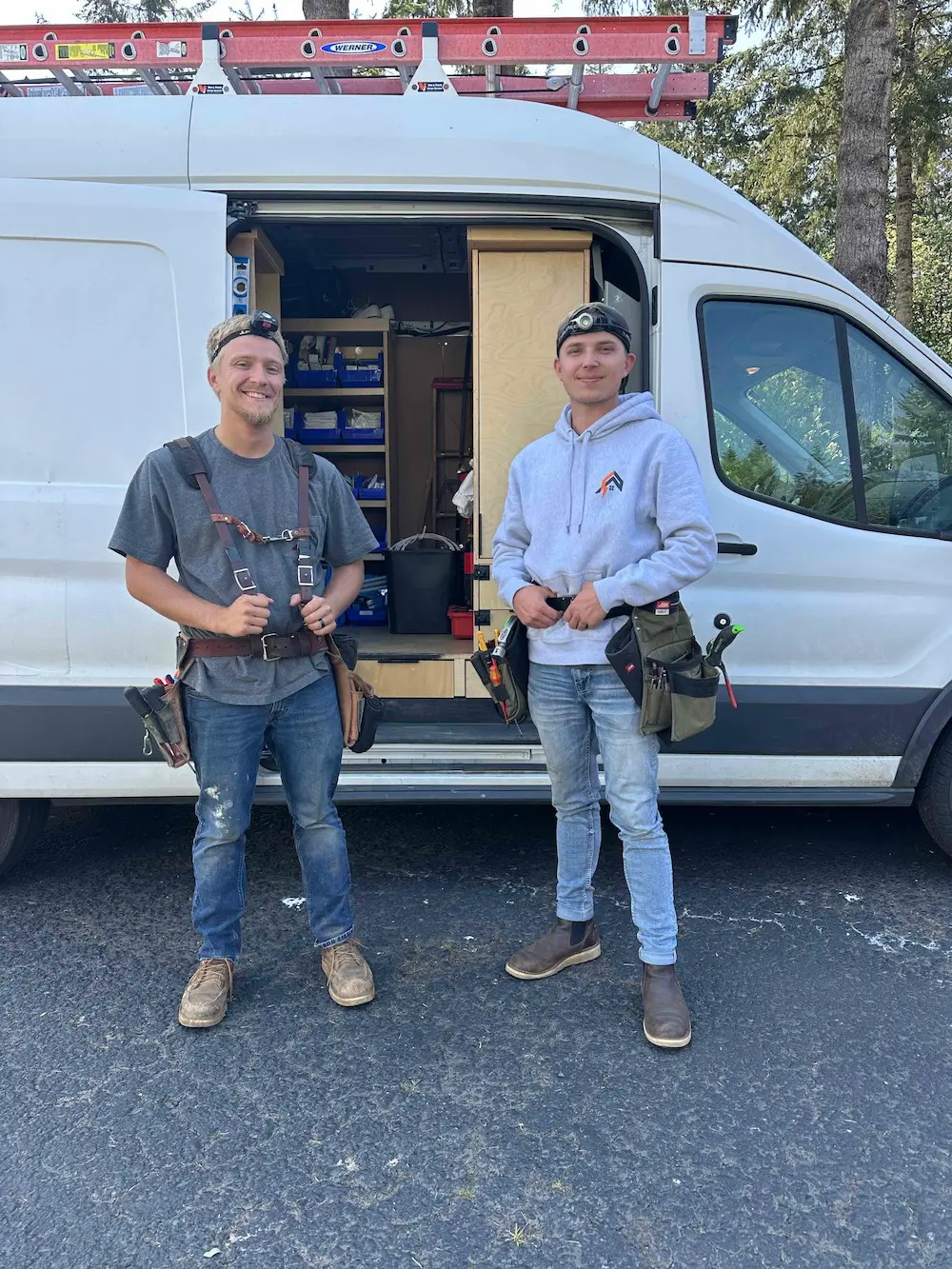The Pacific Northwest is beautiful, but its rain, wind, and moisture can be harsh on electrical systems. In the Vancouver area and throughout Southwest Washington, homeowners face unique challenges: constant drizzle, seasonal storms, and cool damp conditions that expose wiring, outlets, and outdoor equipment to corrosion and water intrusion. Taking proactive precautions can save you from damaging your electrical system; or worse.
Below are smart, practical strategies to keep your home safe, while spotlighting what Karlsen Electric offers in Vancouver, Brush Prairie, Battle Ground, Ridgefield, Kelso, and all of Cowlitz County.
Guard Against Power Surges and Lightning
Storms and fluctuating grid voltage can send surges through wiring and devices. Installing a whole-house surge protector at your main panel is one of the best defenses. It helps absorb voltage spikes before they reach your appliances. For extra safety, combine it with point-of-use surge strips for sensitive electronics like computers, TVs, and smart home gear.
Washington state safety guidelines note that surge suppressors should be replaced after a major power surge, as their protective components degrade over time.
Waterproof Outdoor Outlets & Weatherproof Your Wiring
One of the most common PNW safety issues is moisture and rain infiltrating exterior outlets. Always ensure your outdoor receptacles are GFCI protected and housed in weatherproof enclosure covers that seal against heavy rain. “While-in-use” covers are ideal, because they protect outlets even when plugs are inserted.
Use outdoor-rated, tough-sheath wiring when running cables to detached garages, lighting fixtures, or garden pumps. If water is allowed to seep into conduit, it can corrode wiring over time, causing shorts or fire hazards.
Scheduled Inspections & Preventive Maintenance
Even if your electrical system seems fine today, regular inspections help catch small problems before they grow. A licensed electrician can test your GFCIs, check connections in your panel, evaluate grounding, and spot signs of wear or heat damage.
Homes in Vancouver, Ridgefield, or Kelso built 20–30 years ago may have aging components that don’t hold up well in damp conditions. Catching loose connections or corrosion early is far cheaper and safer than dealing with outages or fire risks later.
Mind Your Hot Tub, Pool & Spa Wiring
Wet environments like hot tubs carry special risks. Always ensure wiring near water is properly bonded and protected by GFCIs.
Never plug a hot tub or spa into a standard outlet or extension cord. Those installations should be done by a qualified electrician, with proper grounding and bonding to prevent shock hazards. In Vancouver-area homes with outdoor wet zones, neglecting this can lead to serious danger.
Inspect Cords, Switches & Older Devices
Rain, frost, and damp air can shorten the life of cords, switches, and outdoor lighting. Periodically inspect all cords and plugs for cracks, discoloration, or brittleness. Replace any damaged components immediately. Also, avoid running extension cords long-term or burying them under paths or mulch. Washington safety guidance warns that extension cords used as permanent wiring wear faster and introduce hazards.
When You Should Call a Professional
There’s a line between routine maintenance done by you and projects best left to licensed electricians.
You should call Karlsen Electric (or another qualified contractor) when, for example:
- 1) You need to install or upgrade a hot tub, spa, or pool wiring.
- 2) You want to add or retrofit outdoor GFCI outlets, weatherproof covers, or surge protection.
- 3) Your breaker panel needs inspection or upgrading to handle modern electrical loads.
- 4) You observe flickering lights, warm outlets, or breakers that trip without clear cause.
- 5) You’re adding high-powered appliances, wiring a shed, or extending circuits outdoors.
Our team at Karlsen Electric is well-versed in dealing with PNW weather challenges. Whether in Vancouver, Brush Prairie, Battle Ground, Ridgefield, Kelso, or Cowlitz County, we ensure installations and inspections are safe, code-compliant, and built for the long haul.

